|
There is no timeline for grief. I could actually stop this post here.
Grief doesn’t have a set timeline, or even a single timeline. There’s no list anywhere that says ‘you must feel like this on day six, like this on week four, and be over it after 12 months and three days’. Everyone grieves on a different timeline, and that timeline is normal for you. I think grieving lasts a lifetime. It is something that we as widows walk alongside. That doesn’t mean it will be as raw as it was in the early days. I am six years out and I still miss Tim. Grief is still there. But I have learned to see it as a quiet companion rather than a raw and bleeding wound.
2 Comments
A good relationship is a partnership. We share tasks, decisions and responsibilities. And when we are bereaved, all those decisions fall on us alone.
When Tim died, the immediate decisions were about the funeral – as Tim’s death was sudden, we hadn’t discussed much – and what to do about his business, and all his clothes and books and magazines. After that, I decided not to make any major decisions for a while. But there were still the smaller decisions to be made on a daily basis. Whether to repaint the sitting room. Which plumber to choose to fix the toilet. Whether the cat was sneezing enough to need to go to the vet. Even little things like what to have for tea. And those, all adding up together, truly can be exhausting, physically, mentally and emotionally. This exhaustion and the lack of a sounding board meant that I made some big mistakes. I spent a huge amount on work on the house/shop, much of which probably didn’t need to be done, and made a couple of bad choices after persuasion from a builder, which later had to be reversed before I could sell the house. I was also badly let down by another builder who disappeared before work was completed. And I made some small ones. I painted the upstairs toilet with an odd paint effect because I ran out of paint. I ate too much or the wrong things. I bought shoes that I never wore. While asking for help can be really hard, having someone to talk these decisions through – a friend, a family member or someone who is part of a face to face or online support group – can lift a bit of the exhaustion. The Widow's Handbook is now on Instagram and Threads
Instagram: the_widows_handbook Threads: the_widows_handbook “Losing a partner in a same-gender relationship is every bit as devastating as losing a husband or wife: you may experience all the same feelings as the surviving partner of a marriage or other heterosexual partnership… but can you count on the same support if you are lesbian or gay?” Lesbian and Gay Bereavement Project leaflet (September 1988). Source: Wellcome Collectio In April 2024. I spent three amazing days looking through some of the the Switchboard LGBT+ archives from a few years in the 1980s, and found some incredible and heartbreaking stories. This is where I discovered the Lesbian and Gay Bereavement Project, created by Dudley Cave. Cave, one of the original committee members of the London Gay Switchboard (now Switchboard LGBT+) and a regular telephone volunteer, spoke with LGBTQ+ people who had lost their partners grieving without support and being excluded from funerals, losing inheritances and facing eviction from joint homes. He created the Lesbian and Gay Bereavement Project. The project was the first of its kind to be established in the UK, and the first organisation with ‘gay’ in the title to gain charitable status in the UK (despite pushback from the Charity Commissioners to change the name). The aim of the project was to give “support at a time when it might seem that all friends had deserted”, helping people right from the first few hours and days of a bereavement. This included practical help: finding a minister of religion or a secular officiant to look after the funeral (“someone who will understand and approve the love felt for the dead partner”), as well as registering the death and talking to funeral directors, (sourced from the Hendon Edgeware Independent, 2 February 1984). The snapshots of stories from the Lesbian and Gay Bereavement Project and from the pages of the Switchboard logbooks talk about LGBTQ+ widowhood and anticipatory grief. Some are of their time, and tell of the homophobia and the legal challenges that were more common before civil partnership and same sex marriage. Because of this, Cave would recommend to all LGBTQ+ people that they should make wills and keep them up to date, name their partner as next of kin going into hospital, however short the stay or minor the procedure. Others are stories of heartbreak that mirror those of bereaved LGBTQ+ people today. The snapshots that follow are rewritten and anonymised. “My girlfriend and I were together for six years. When I arrived at her funeral her mother shouted at me, telling me that I had no right to be there. At the inquest of her suicide, they asked me if we had made love that day, and whether we had any ‘normal’ friends. My family told me that they were glad my partner was dead, and that perhaps I might now marry a good man and have his children. My mother even turned up at the door with a man, to fix me up on a date. At least work treated me well – I'm a teacher – they said I could take as long off as I wanted.” “My boyfriend – he was my teacher – died. I have no support as not everyone knows that I am gay. I feel really guilty about the age difference, and my friends and family aren’t giving me any support.” “My best friend has AIDS. I’ve already lost four friends in two years. I can’t cope. I don’t know whether I want to go on if everyone I love is dying.” “My partner has cancer of the bones. This is probably her last weekend. She just wants to talk but I am terrified – I can’t even stay in the same room as her. My Catholic parents say that her cancer is a punishment for us being lesbians, and that we will burn in hell.” “We didn’t make wills and I’m not allowed to attend the funeral.” “I didn’t do enough.” “I’m sorry – I’m crying – it’s so embarrassing.” “It’s 13 months on and I feel I should be doing better by now.” “It was a very good funeral – we had a gay vicar.” “We’ve been together since we were 17.” “The family took over the funeral.” “I’m not eating.” “The Church of Christ found out that I was gay, and now they want to get me out of the accommodation.” “I’m a Spiritualist, but I don’t want him to come to me.” “They left his coffin alone in the chapel – it felt like they were abandoning him.” “I met him on holiday. He was killed in an accident on the way to the airport to come to see me. I have lost our future.” “We lived in his house, but when he died, I had to give the keys back. We’d had a row and he changed his will, leaving it all to charity. I only have my disability pension now.” “He died of AIDS in hospital. When I took him there he felt that I was sending him away but I just couldn’t manage on my own any more. He didn’t want to die – it wasn’t a blessed release.” “My girlfriend died of breast cancer. I can’t speak of my loss to anyone.” “He died by suicide. When he came out to his parents, his mother was fine but his homosexuality concerned his father. She’s managing all right with her grief but she can’t cope with his father’s unwillingness to talk about their son. He finally allowed her to put up a picture in the hall, but she’s not allowed to put one up in the living room. I think she’s dreading Christmas.” “We had no wills and the relatives are threatening to come and take everything. I’ve hidden our valuables.” “He was killed in a car crash. I’m angry – he was a stupid driver and his car went under a lorry.” “He died of AIDS. He supported me when I lost my job. I as asked not to go to the funeral, even though we lived together for five years. I’m numb, and I think I’m going to lose my home.” “He was a heroin addict. I feel I’m to blame for his death.” “There was no will. It all went to his nephew.” “The dog keeps looking up at the corner of the room. I’m not religious, but…” “We’ve been together for 40 years since we left the forces. I can’t go on.” The Switchboard LGBT+ and Lesbian and Gay Bereavement Project archives, along with archives from the Terrence Higgins Trust and others, are held at the Bishopsgate Institute, a beautiful Victorian building in the City of London. The institute is home to one of the most extensive collections on LGBTQIA+ history, politics and culture in the UK. The building flies the progress Pride flag, and the archives room is lined with a huge variety of LGBTQ+ flags.
Dudley Cave: Born London 19 February 1921; died London 19 May 1999 Dudley Cave was born in London in 1921, and worked for Odeon Cinemas when he was young. He was conscripted into the Army in 1941 and served in the Royal Army Ordnance Corps as a driver. Until 1999, there was an official ban on lesbians and gay men serving in the Armed Forces. Despite this, and despite the homophobia back in the UK, according to Cave, homosexual officers were more or less accepted. Even when ‘caught in the act’, they may get a reprimand, be transferred to a new unit, or be given hard labour to turn them into ‘real men’ "People were put in the army regardless of whether they were gay or not", said Cave. "It didn't seem to bother the military authorities. There was none of the later homophobic uproar about gays undermining military discipline and effectiveness. With Britain seriously threatened by the Nazis, the forces weren't fussy about who they accepted... They used us when it suited them, and then victimised us when the country was no longer in danger. I am glad I served but I am angry that military homophobia was allowed to wreck so many lives for over 50 years after we gave our all for a freedom that gay people were denied." Taken from a piece by Peter Tatchell Cave was taken prisoner by the Japanese in 1942, and was assigned to the construction of the Thai-Burma railway, not far from the renowned bridge over the River Kwai. He was then sent to Changi Prison in Singapore after a serious bout of malaria, where he stayed until the end of the war. He lost four stone – one third of his body weight – and was close to death from malnutrition. In Changi, an army medical officer gave him a copy of Sexual Inversion by Havelock Ellis, and this helped him to accept his sexuality. Cave was repatriated after the end of the war, in 1945.
Back in the UK, there was still a lot of discrimination against gay people. In 1954, Cave was asked to resign from his job as manager of Majestic Cinema in Wembley, London. When he refused, he was given the sack. Also in 1954, Cave met his partner, Bernard Williams. Williams had married his wife, June, to try to ‘overcome’ his sexuality. June understood, and the three became close friends, living together in Golders Green. Cave and Williams stayed together as lovers and gay rights campaigners until Williams’ death in 1994. In 1971, Cave joined the Unitarian Church, and was key to them ordaining lesbians and gay men, blessing same sex relationships and advocating for LGBTQ+ human rights, even before legal recognition of same sex relationships. He created Intergroup, which brough together LGBTQ+ and straight Unitarians to promote acceptance and foster dialogue, one of the first groups of its type. He campaigned for peace and reconciliation between Japanese soldiers and prisoners of war, and he attended the dedication of a Buddhist temple on the banks of the River Kwai as a symbol of this reconciliation. Cave was one of the original committee members of the London Gay Switchboard (now Switchboard LGBT+) at its launch in 1974, and he remained answering phones until his death. Through the calls he took, he saw LGBTQ+ people who had lost their partners grieving without support and being excluded from funerals, losing inheritances and facing eviction from joint homes. To meet their support needs, he created the Lesbian and Gay Bereavement Project. The project was the first of its kind to be established in the UK, and the first organisation with ‘gay’ in the title to gain charitable status in the UK (despite pushback from the Charity Commissioners to change the name). Another of his campaigns was to get the Royal British Legion, the UK Government and the Armed Forces to acknowledge that LGBTQ+ people served in the Armed Forces and lost their lives. Not long before his death he spoke at OutRage!'s Queer Remembrance Day vigil at the Cenotaph, and laid a pink triangle (the symbol worn by LGBTQ+ prisoners in concentration camps) to honour the lives and deaths of LGBTQ+ people. Sources: The Yorkshire Unitarian Union BBC: A gay soldier’s story Obituary: Dudley Cave (Peter Tatchell) Peter Tatchell on Dudley Cave (video) Thank you to the amazing members of the WAY LGBTQIA+ group for their help in writing this piece.
Being widowed is one of the hardest things that people have to face. Being widowed as a member of the LGBTQIA+ community can make things even harder. I’d hoped that things had changed from the 1980s stories of LGBTQIA+ widows that I collected from the Switchboard archives, but the challenges are still there. Coming out again… and again… and again… Coming out is never is a one-time thing, but after someone dies there is even more coming out to a lot of new people, from hospital staff and paramedics through staff at registry offices and funeral directors to the people celebrating the funeral. Are you a widow? As far as the Widow’s Handbook is concerned, you are a widow if you have lost your partner, whether you are married, civil partnered or neither, and LGBTQIA+ or not. But legally, the wording does differ – if you were in a civil partnership, the wording will describe you as the surviving civil partner, not the widow. Are you the husband/wife? There’s a lot of explaining relationships after the death of an LGBTQIA+ partner. People on the other end of the sadmin process, such as banks, utilities and government bodies, can assume the gender/sexuality of both the widow and the person who has died, even when they have details of names, genders and relationships. From Joanna Sedley-Burke in an interview for the Widow’s Handbook for Pride 2023: “When I went to register Paula's death, I was asked if I was her daughter or her mother. When I started the admin after her death, on the very first call when I said that I was a widow, the immediate response was 'when did your husband die?' I know that same sex marriage was relatively recent then, but it put another layer on something that was already hard.” LGBTQIA+ partners, if not married or civil partnered, may not be informed of deaths, given invitations to inquests, told of autopsy results, allowed to register deaths, or allowed to organise (or even attend) the funeral. Arranging a funeral A Church of England funeral is available to anyone in their own parish, whether they were churchgoers or not. A funeral in a different denomination or in another religious building may depend on the willingness of individual religious leaders. People say the oddest things People say a whole raft of things they shouldn’t when faced with a widow, but being an LGBTQIA+ widow brings a whole other level of statements, from being told by a registrar ‘I’ve not registered one of you before’, through ‘are you even a man or a woman’ or ‘partner… do you mean business partner?’, to a colleague bursting out ‘but I didn’t even know that you were gay’. Homophobia and biphobia can emerge – there can be assumptions that because people are queer they must have been promiscuous during their relationship, so being an LGBTQIA+ widow isn’t as big a deal as being a cis/straight widow. On being told that I was bisexual, an acquaintance in the pub assumed that must have been sleeping with women while I was married to Tim. So many of us who are bereaved yearn for one last touch, one last kiss, one last conversation, an opportunity to say goodbye. Danny Echo from Root & Branch Productions (Lawrence Batley Theatre) explores that possibility (or impossibility).
Danny Echo opened with a single figure seated absolutely still on a sofa – Danny (Christopher Deakin), or rather the AI replica created by controversial scientist Dr Meryl Kane (Lynne Whitaker) as part of a scientific study of AI robotics on grief. The replica gives Rachel (Lucy Hilton-Jones), Danny’s young widow, the option to have Danny back in a limited form – he can only repeat the words and actions from one day. And so, Rachel chooses to relive the day he died in a freak accident in a snowstorm. Rachel is deeply uncomfortable with the robot ‘Danny’ at first, but over a period of a few weeks, Rachel uses an app to control the recording of the last day as if it’s a video recording, with Danny echoing his actions and words in an eerily pitch-perfect repetition from Deakin. We learn more about the couple, as Rachel becomes increasingly dependent on the Danny replicant, and her brother Tom (Joe Geddes) tries to keep her rooted in reality. Danny’s lines are cleverly written to give us just one side of the conversation. Finally, we hear both sides of the last argument, understand what happened on that last day, and see Rachel’s realisation that nothing can change. It got so many aspects of grief right – the numbness and lack of reality on the day they die and the impulsive decisions we can make at that time, the not wanting to be with people who are celebrating their smug joy of being part of a couple when your ‘coupleness’ has suddenly been ripped apart, the deep and desperate desire to feel the touch of your person, the almost overwhelming desire to make right the things that you said wrong, and the awful feeling of not having said ‘I love you’ the last time you spoke. It explores that we do need to let go in certain ways (though not forget) to be able to move forward. The only thing that didn’t sit right with me (and that’s likely to be because I am a medical writer and have studied the role of science in drama) is that the script didn’t make clear any scientific justification for the study in the play, or what the data was supposed to show. I think this quibble is just one for me. It was an interesting watch, and not necessarily one I could have seen early in grief, but I’m glad I saw it. I have always been a very tactile person, and when Tim died I missed his touch so much. I used to get up before he did and start work, and then come back to bed for a cup of tea and a cuddle. There were the little touches too – walking hand in hand. My hand on his knee when we sat together in the pub. A hug and a kiss before I went out. After he died and the paramedics left, I lay on the floor with him, my head tucked into his neck.
My friends and family are good at hugs, and that helped. As did haircuts and massages (the local college ran a beauty course and the trainees did brilliant full body, deep muscle massages) but it wasn’t the same. And then we went into lockdown, and I understood what skin hunger (also known as touch starvation or touch deprivation) really meant. After lockdown, when I went back to my Pilates class, my tutor put her hand on me to adjust my position and I almost cried. Touch is really important – newborn babies are comforted by skin-to-skin contact with their parents or carers, and kangaroo care is especially important for low-birthweight or premature babies. There is science behind skin hunger – touch triggers the release of the feel-good hormone oxytocin, and stimulates pressure sensors that send signals to the vagus nerve, calming the nervous system. Stress triggered by lack of touch releases cortisol which can increase your heart rate and blood pressure. What can help (and I know it's not the same)
There are all kinds of widows.
Grieving is incredibly tiring. Grief hurts physically. You can be really thirsty in the raw days of grief. There's no one normal in grief - how you grieve is normal for you, two people's grief are the same, and no-one should ever tell you how to grieve. You are not responsible for anyone else's grief. Grief does not have a timeline. Grief is not linear. The people who you thought would step up aren’t always the ones you expect. You become responsible for everything, from what you have for tea to running the household. People make you a lot of tea. You lose your past, your present and your future. Grounding techniques can actually work. Your perspectives change. Your people change. Widow’s brain is real. Skin hunger/touch starvation is real. Heartache and yearning are real. Loneliness is real. The world carries on without them. The run up to a milestone day can be worse than the day itself. All of the firsts aren't necessarily over in the first year. You miss having someone to do nothing with. Life is now before and after, and will never be the same again. You will never be the person you were before - and that can be both positive and negative. Sometimes I feel like I'm living two parallel lives. It can be the loss of the little things that hurt the most. People say the most ridiculous things, but they also say the loveliest things. It’s okay to be really angry. It’s okay to have widow’s fire. Your appetite can increase or decrease, and cooking for one is hard after you've cooked for two. Retail therapy sometimes works - but it's not a good long term plan. It’s okay to not clean the house, or leave the washing up until Thursday. It's okay to say no. Celebrating the tiniest win, like having a shower, is good. Asking for help is hard. Sheep give you funny looks when you stand in the middle of a field in the middle of nowhere and sob. That it doesn’t always hurt like it did in the early days. You don't move on from grief but you can move forward. That you might find love again. Or you might not. And either is fine. You can be happy again. It’s not the happy you planned for but it’s okay. Tim and I went to The Ark, an animal rescue and homing centre in Ashbourne, to go to their open day. Him to poke through the second-hand books for his antiquarian bookshop, and me to look at the animals. Just look. And then we met RubyCat. A little five-month-old scrap of tortoiseshell kittenhood. And obviously we fell in love. We weren’t living together at this point, but I was due to go away to the US for work, and so Tim moved in for a couple of weeks to settle her in while I was away. And from that point on, they were inseparable. I always said that the shortest amount of recorded time was between Tim sitting down and Ruby leaping onto his lap Ruby triumphantly outlived the two resident cats, sleek black-and-white Dizzy and black housepanther Satchmo, and strutted around the house proclaiming her couch, her food bowl, her humans After Tim’s sudden death, Ruby was my comfort and my sidekick. She’d never been allowed into the bedroom at night before, but now when I woke up and couldn’t get back to sleep she was curled up on me or at my back, and her purring soothed me. When Dee and her cat and dogs moved in, Ruby lived in my upstairs office during the day, sitting on my desk supervising, and tapping my hand when I didn’t pay her enough attention, and continued to sleep on me at night. Over the last few months she started to lose weight, become wobbly, and sleep even more, but she still ate and purred and jumped onto the bed. When she couldn’t jump onto my lap any more and started to fall over, and when the purr started to dim, I knew I had to be brave for both of us. I took her to the vet for the last time. I stroked her as she slipped away, and Dee held onto me. We will plant a ruby-coloured rose in the garden that Ruby looked out on from the high point of my office windowsill.
RubyCat’s loss is doubly hard, because it feels like I’m losing one of the last living links to Tim. I’m not sure that I believe in an afterlife, but if I do, I know that she will be leaping onto his lap the moment he sits down. Sleep well, little cat. |
AuthorI was widowed at 50 when Tim, who I expected would be my happy-ever-after following a marriage break-up, died suddenly from heart failure linked to his type 2 diabetes. Though we'd known each other since our early 20s, we'd been married less than ten years. Archives
July 2024
Categories
All
|



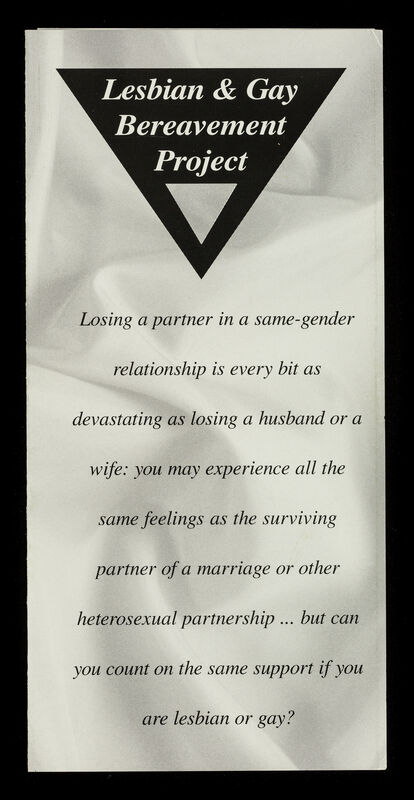
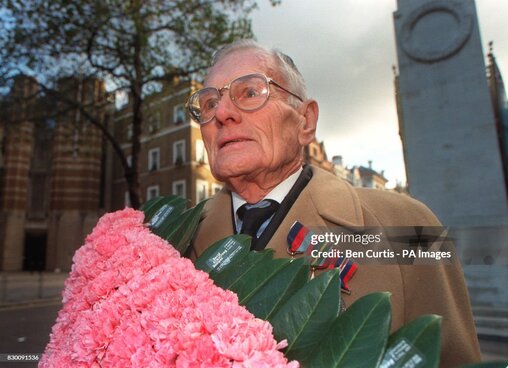




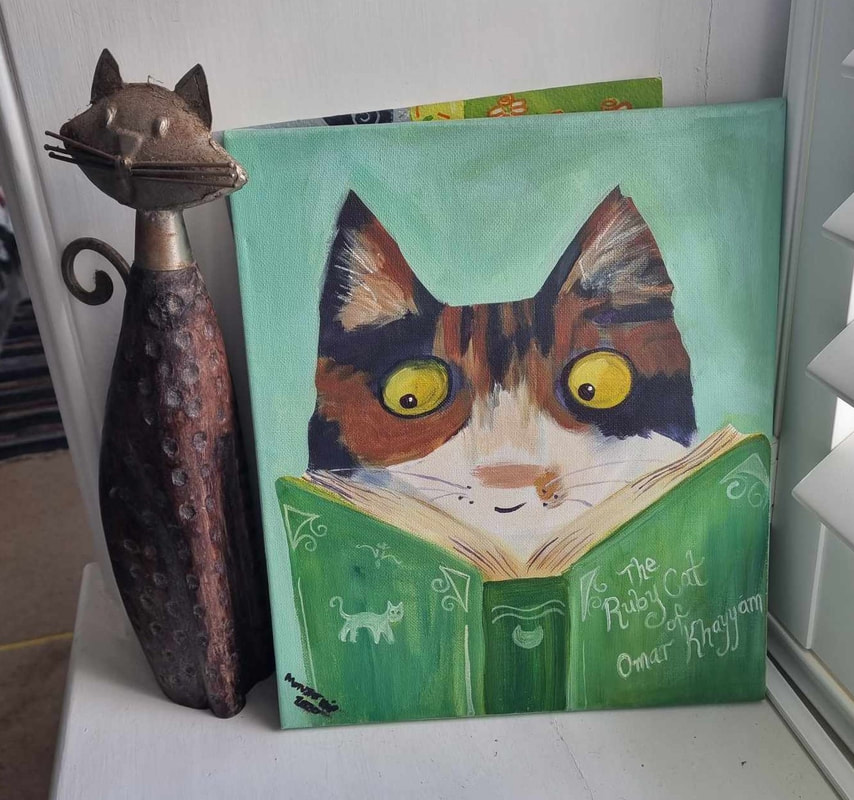
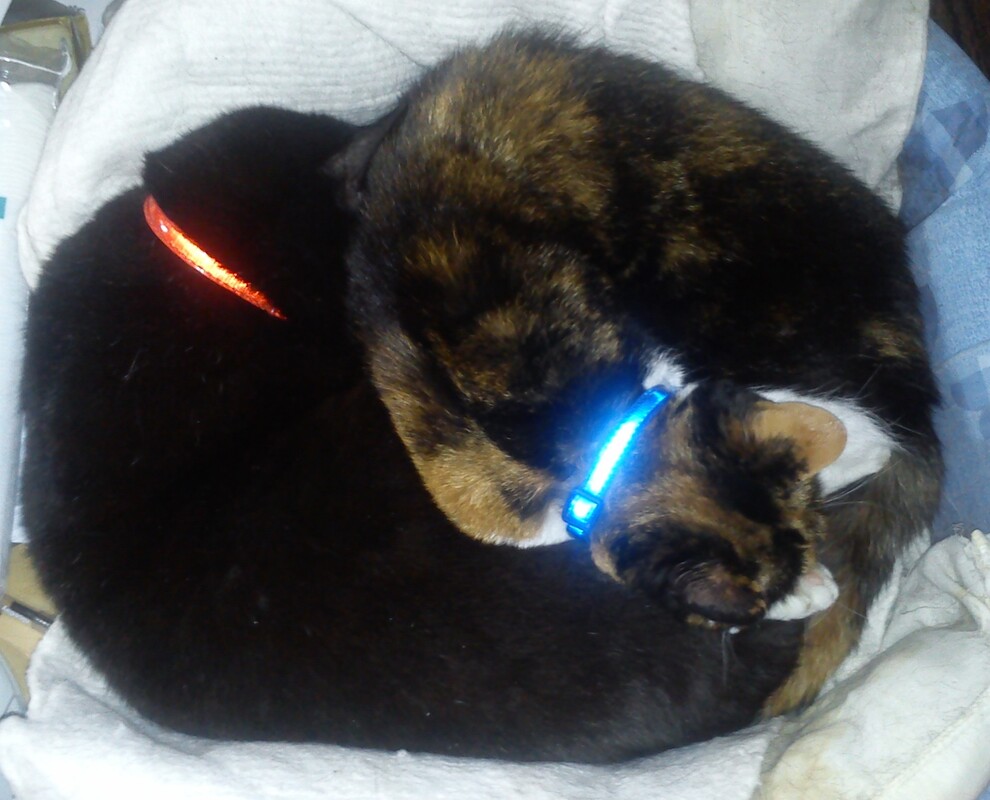
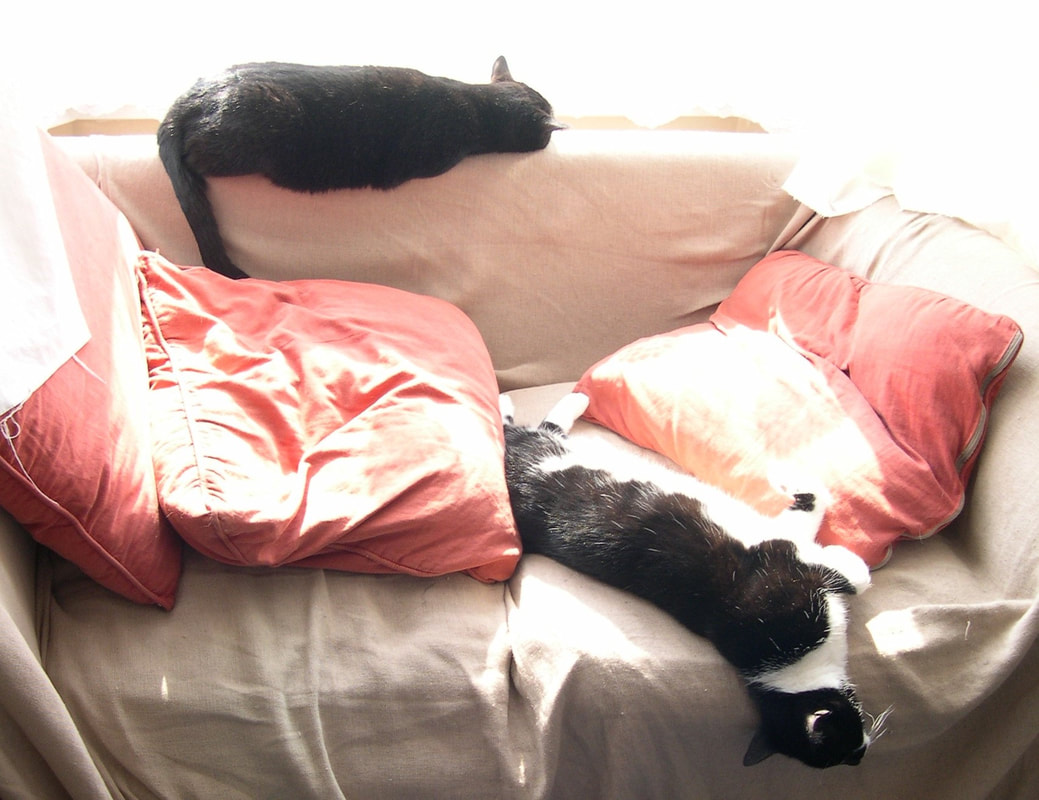
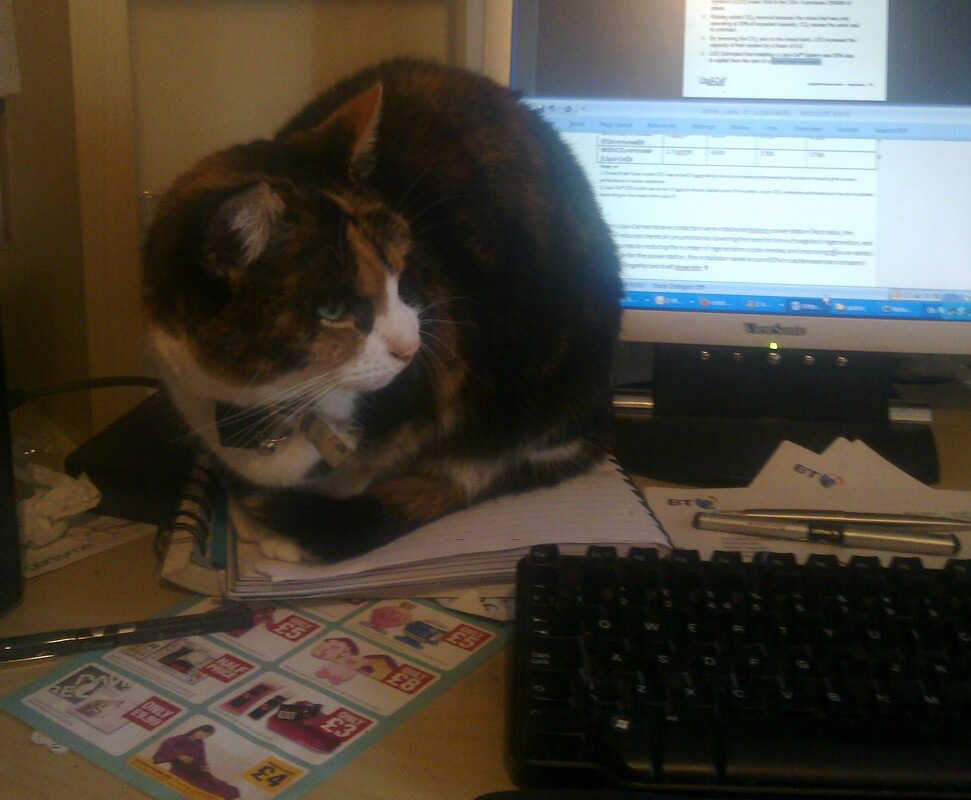

 RSS Feed
RSS Feed